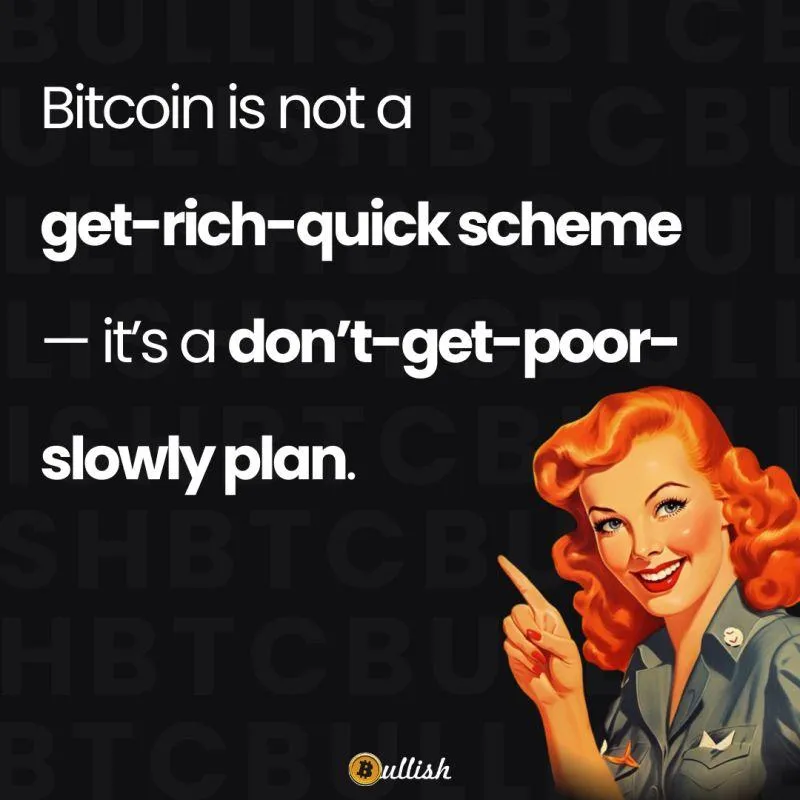
Does Fiat Really Erode Wealth? A Bitcoin Debate Worth Having
One of the best ways to sharpen your understanding of Bitcoin is to test it against serious counterarguments. Recently, a reader raised thoughtful objections to the idea that fiat money erodes wealth. Their perspective represents what many classically trained in finance or economics believe, so it’s worth unpacking carefully.
Rather than dismiss these points, let’s walk through them. Along the way, we’ll highlight where traditional finance thinking has merit and where Bitcoin offers a deeper resolution.
The Reader’s Argument: Fiat Doesn’t Erode Wealth
The main points can be summarized as follows:
Assets rise with inflation. Over the long run, stock prices, real estate, and other assets adjust for monetary expansion. So wealth is not “eroded” if you don’t sit entirely in cash.
Inflation effects are temporary. Monetary expansion may create distortions in the short term, but in the long term those distortions even out. Anyone with a long-term investment horizon is not hurt.
Money is a measuring stick. Just as making a ruler shorter doesn’t change your actual height, changing the money supply doesn’t change the underlying value of productive assets. Money itself doesn’t create or destroy value, it simply measures it.
Bitcoin is no different. Bitcoin is just another “measuring stick.” It doesn’t produce goods or services, and therefore it can’t create value. It is rising in price, not because of underlying fundamentals, but because of hype and misunderstanding. In this view, Bitcoin is a bubble.
These are clear, rational arguments. They deserve an equally clear response.
The Counterargument: Why Fiat Does Erode Wealth
1. The Uneven Distribution of New Money
In theory, asset prices adjust to inflation evenly. In practice, they don’t. This is the Cantillon Effect: new money enters the system through specific channels (banks, governments, corporations) and benefits those closest to the source first.
By the time wages and savings catch up, prices for goods, services, and assets have already risen. This lag creates a permanent loss of purchasing power for wage earners and savers. It is not just a “temporary distortion.” It compounds over time into wealth inequality and lost purchasing power for the majority.
2. The Forced Chase for Yield
It’s true that if you own stocks, you may preserve or even increase wealth over time. But here’s the problem: you cannot simply save in cash or low-risk instruments. Fiat debasement forces people into riskier assets just to stay ahead of inflation.
That is not a neutral measuring stick. That is a measuring stick that pushes behavior, inflates bubbles, and increases systemic fragility. Even if “real returns” balance out on a spreadsheet, the lived experience is very different for someone who cannot afford to participate in asset markets at all.
3. Money Shapes Behavior
The idea that “money doesn’t create or destroy value” sounds neat, but history shows otherwise. The type of money in use affects time preference, savings rates, and investment horizons.
Under sound money, societies build cathedrals, infrastructure, and dynasties.
Under easy money, societies lurch from boom to bust, fueled by debt and speculation.
So while money is a measuring stick, it is not a neutral one. A warped measuring stick distorts the entire economy built upon it.
4. Bitcoin vs. Stocks
Bitcoin, like stocks, is priced in dollars today. But the difference is fundamental.
Stocks are tied to companies run by executives who face constant pressure to maximize quarterly earnings and shareholder returns. Incentives are short-term and often distort long-term value creation.
Bitcoin has no CEO, no board, and no quarterly incentives. Its supply is fixed forever at 21 million. Its governance is decentralized. Its rules do not bend to human decision-making.
That makes Bitcoin more than just “another asset.” It is a monetary protocol, a base layer of money that is immune to manipulation.
Why This Debate Matters
The reader’s perspective highlights a crucial point: traditional finance is built on the assumption that the system eventually evens out. But Bitcoin reveals that the design of money itself is not neutral. It matters who benefits first, who gets left behind, and what behaviors are rewarded.
Fiat systems reward short-termism and speculation. Bitcoin rewards patience and savings. Fiat compounds inequality. Bitcoin offers a level playing field.
Closing Thoughts
The reader was not wrong to say that money is a measuring stick. But what they missed is that not all measuring sticks are created equal. A crooked ruler will distort everything built with it.
Bitcoin is the first straight ruler humanity has had in centuries. It is money that cannot be manipulated, diluted, or politicized. That may not create “value” in the way a company does, but it creates the conditions for value to flourish fairly across society.
This is why Bitcoiners hold — not out of blind faith, but because they see money itself as the foundation. When the foundation is fixed, the structure above it can finally grow strong.



